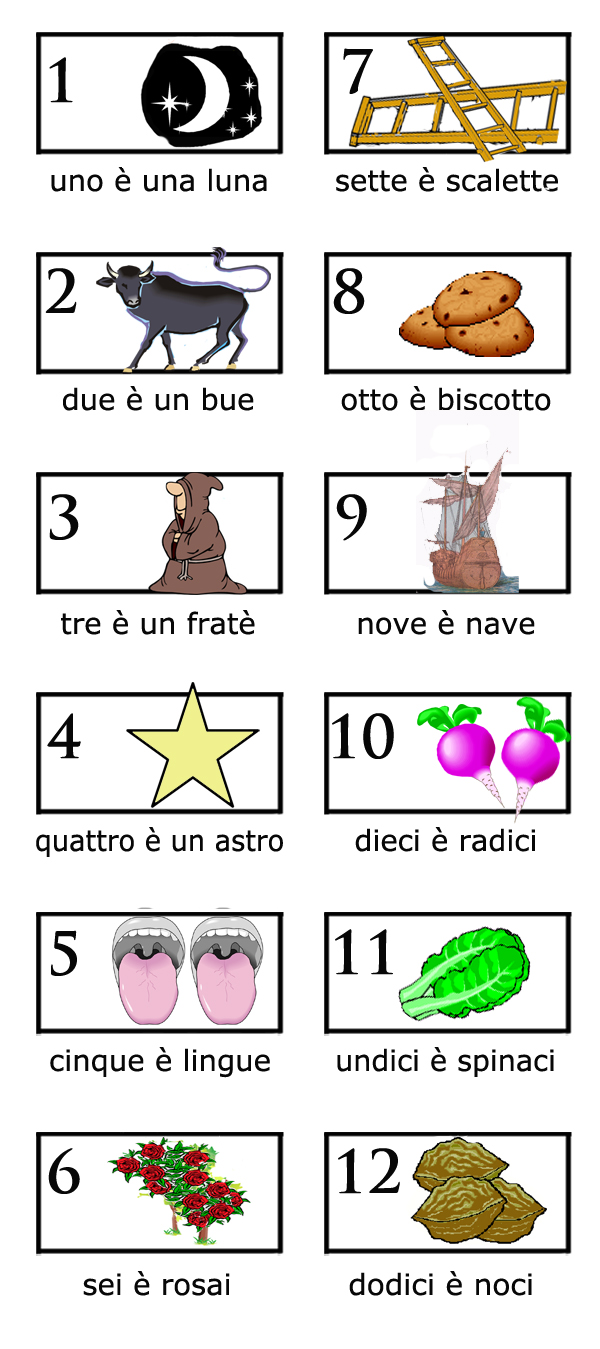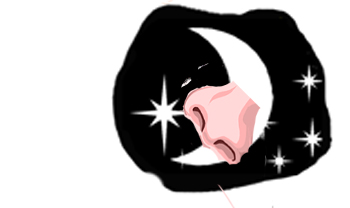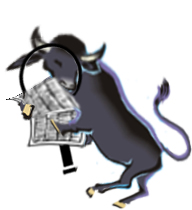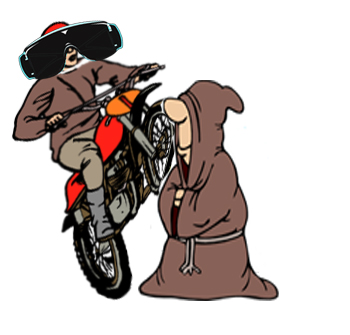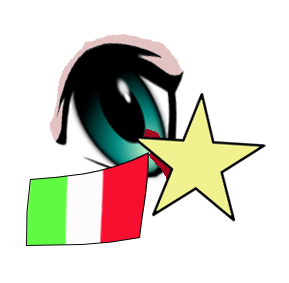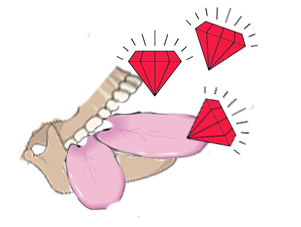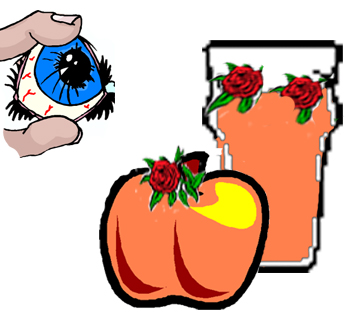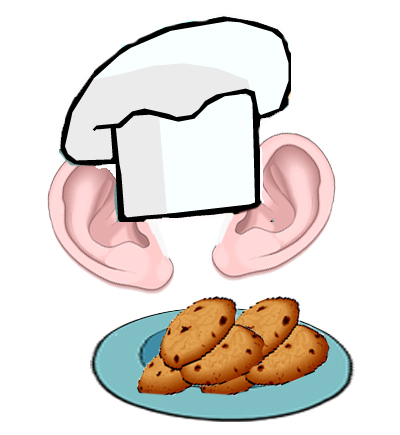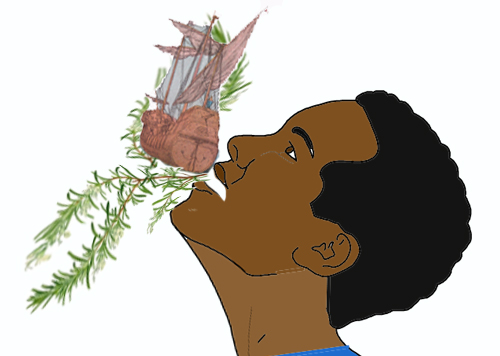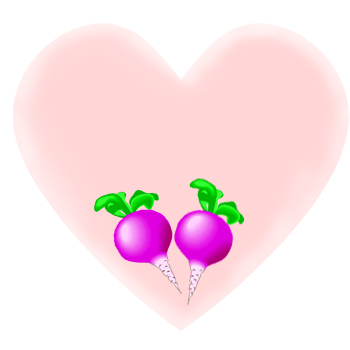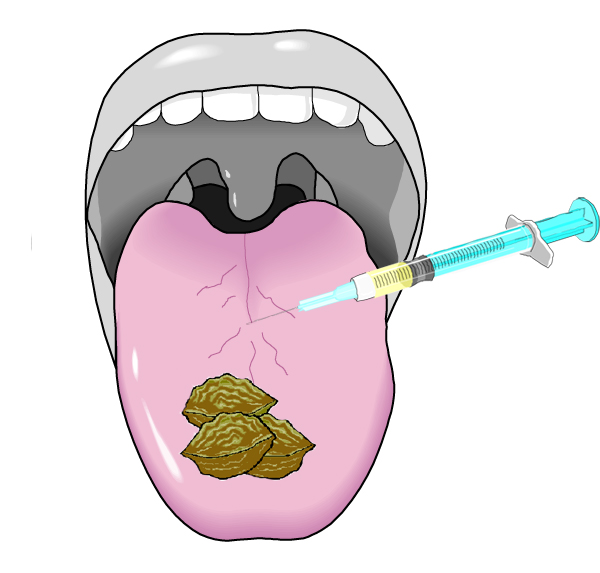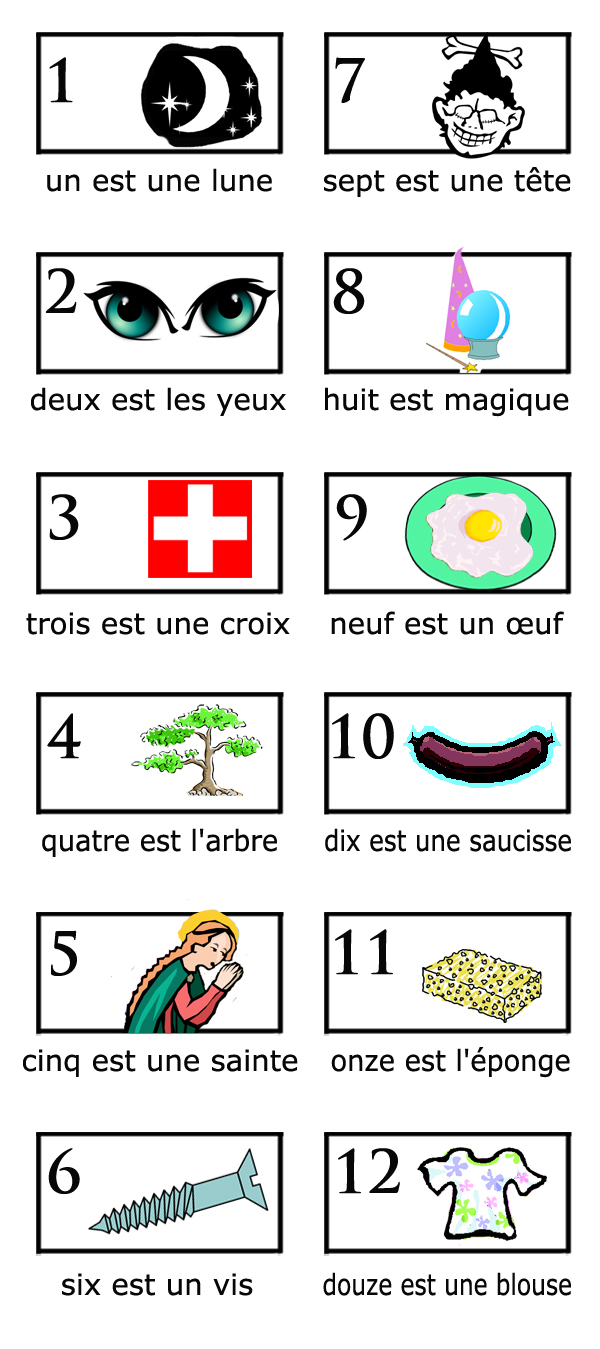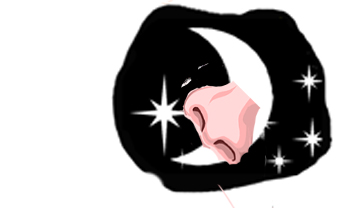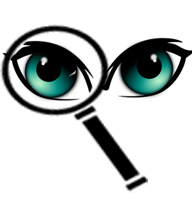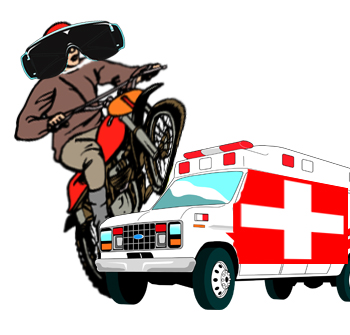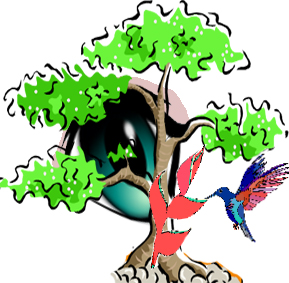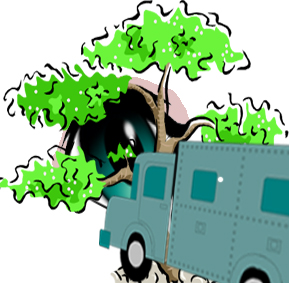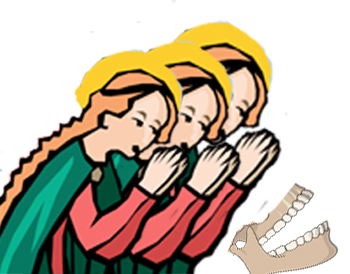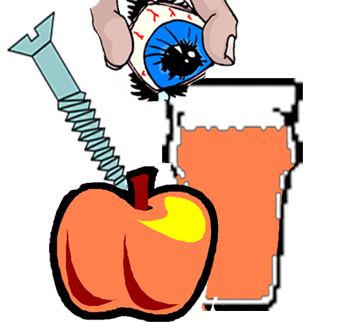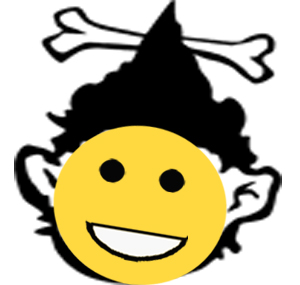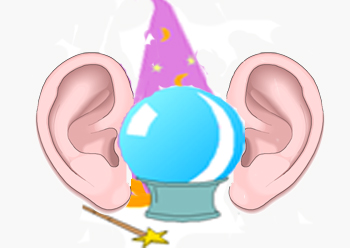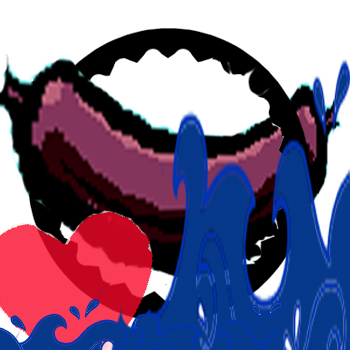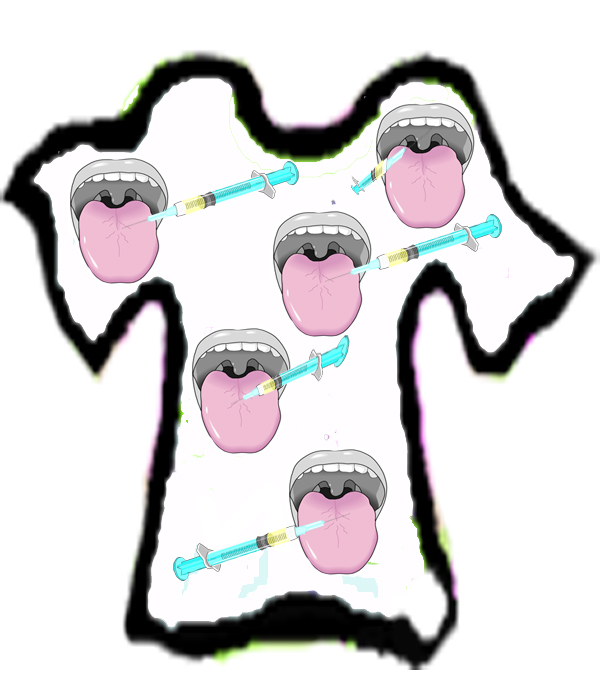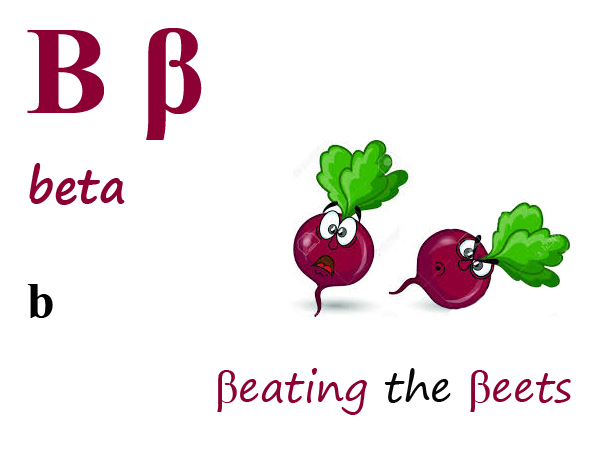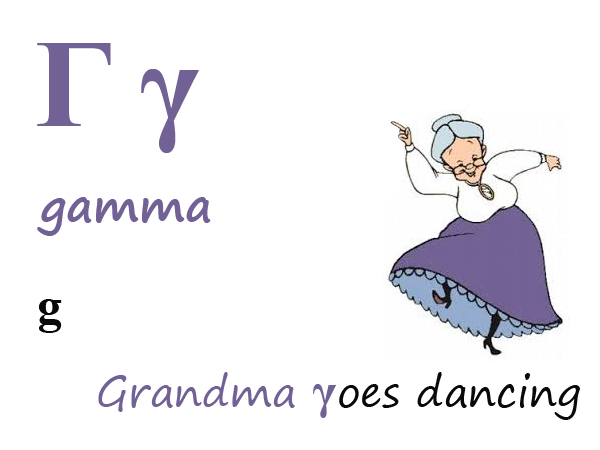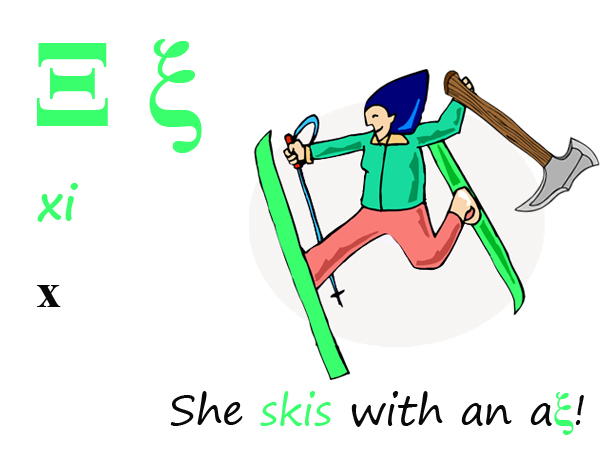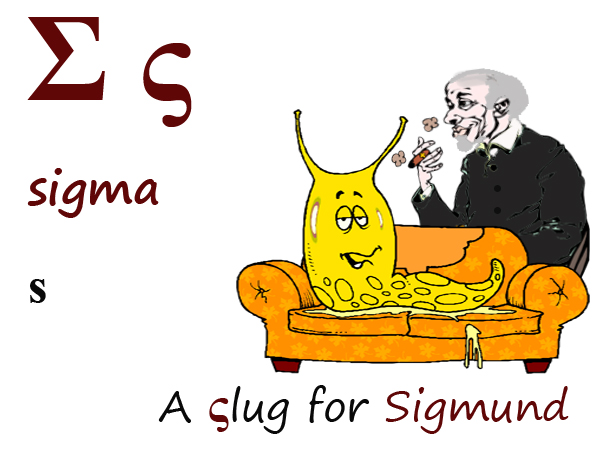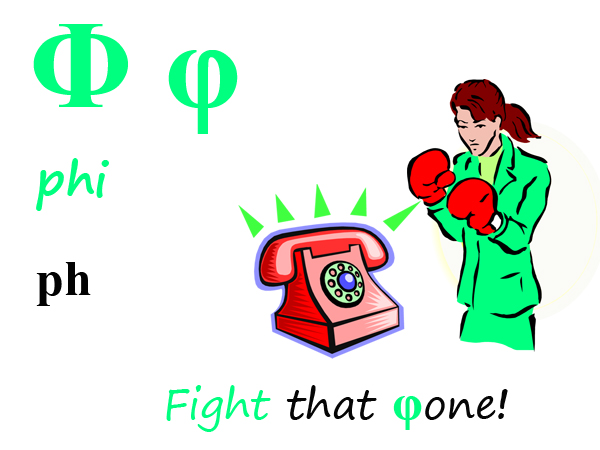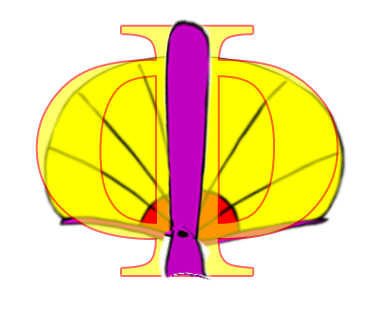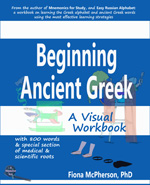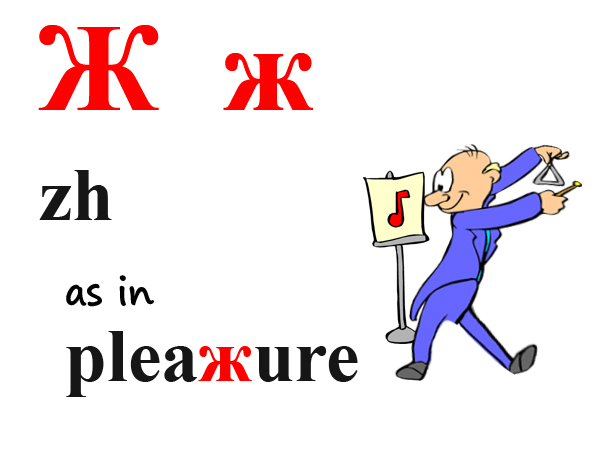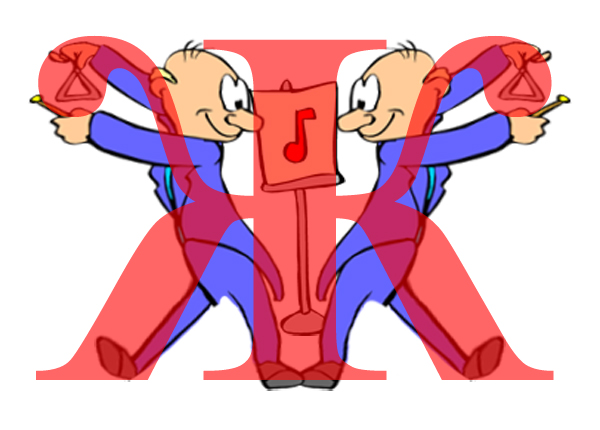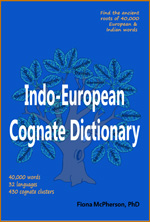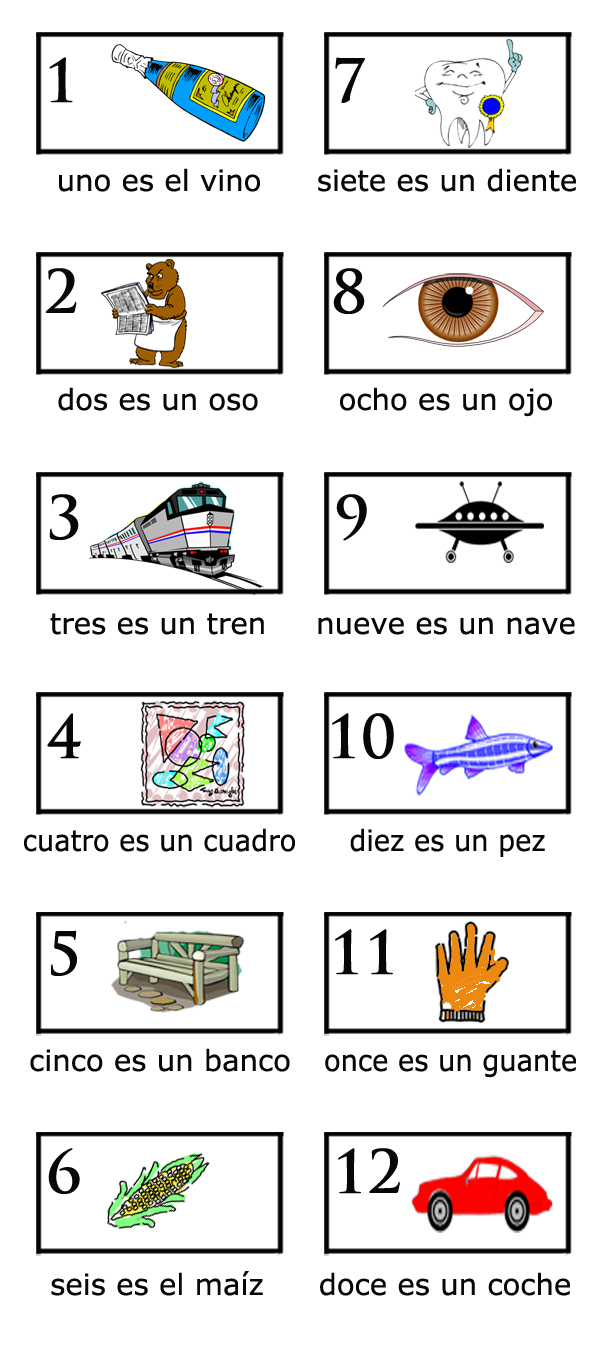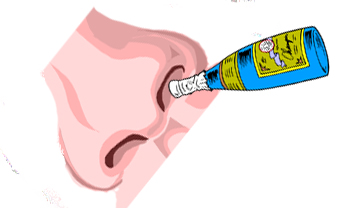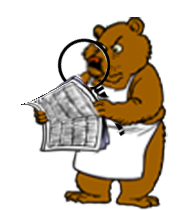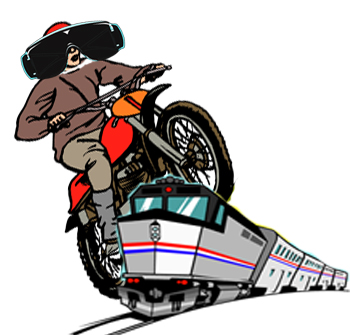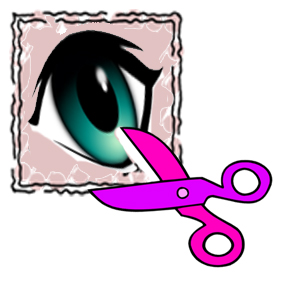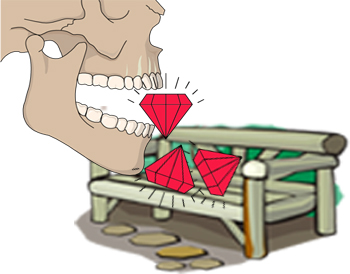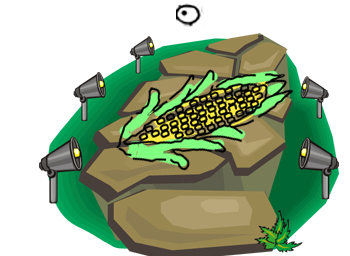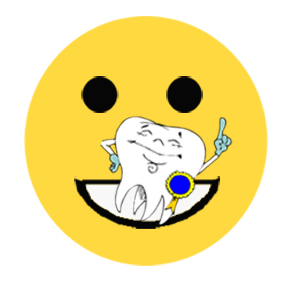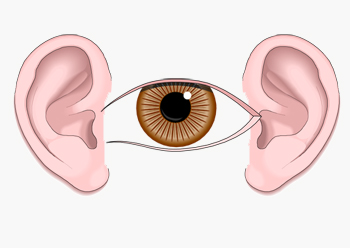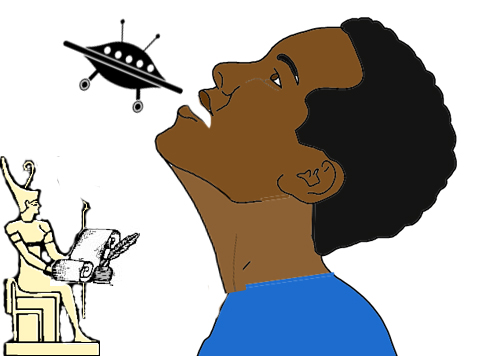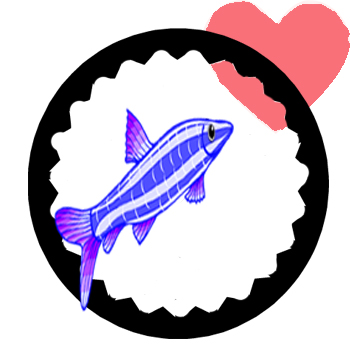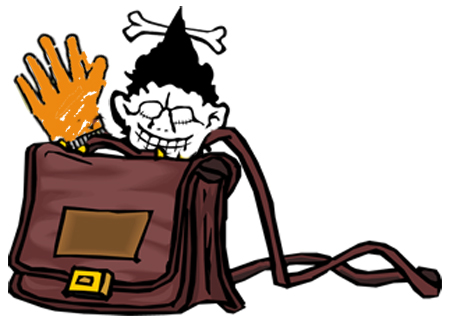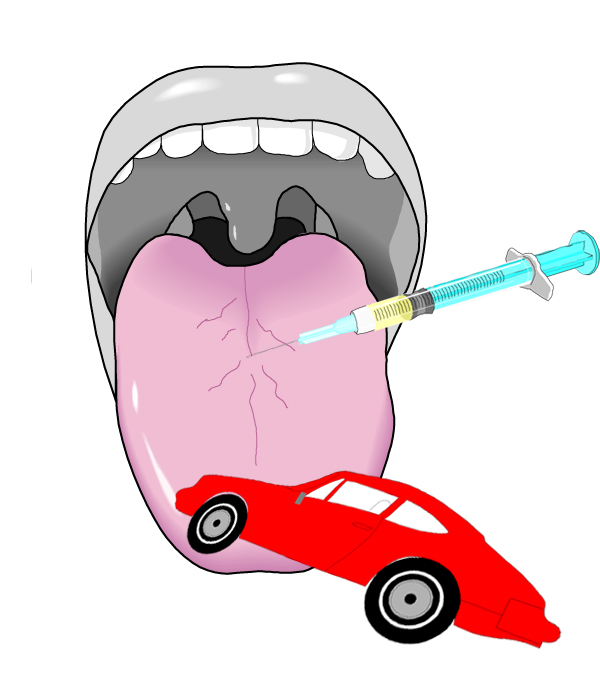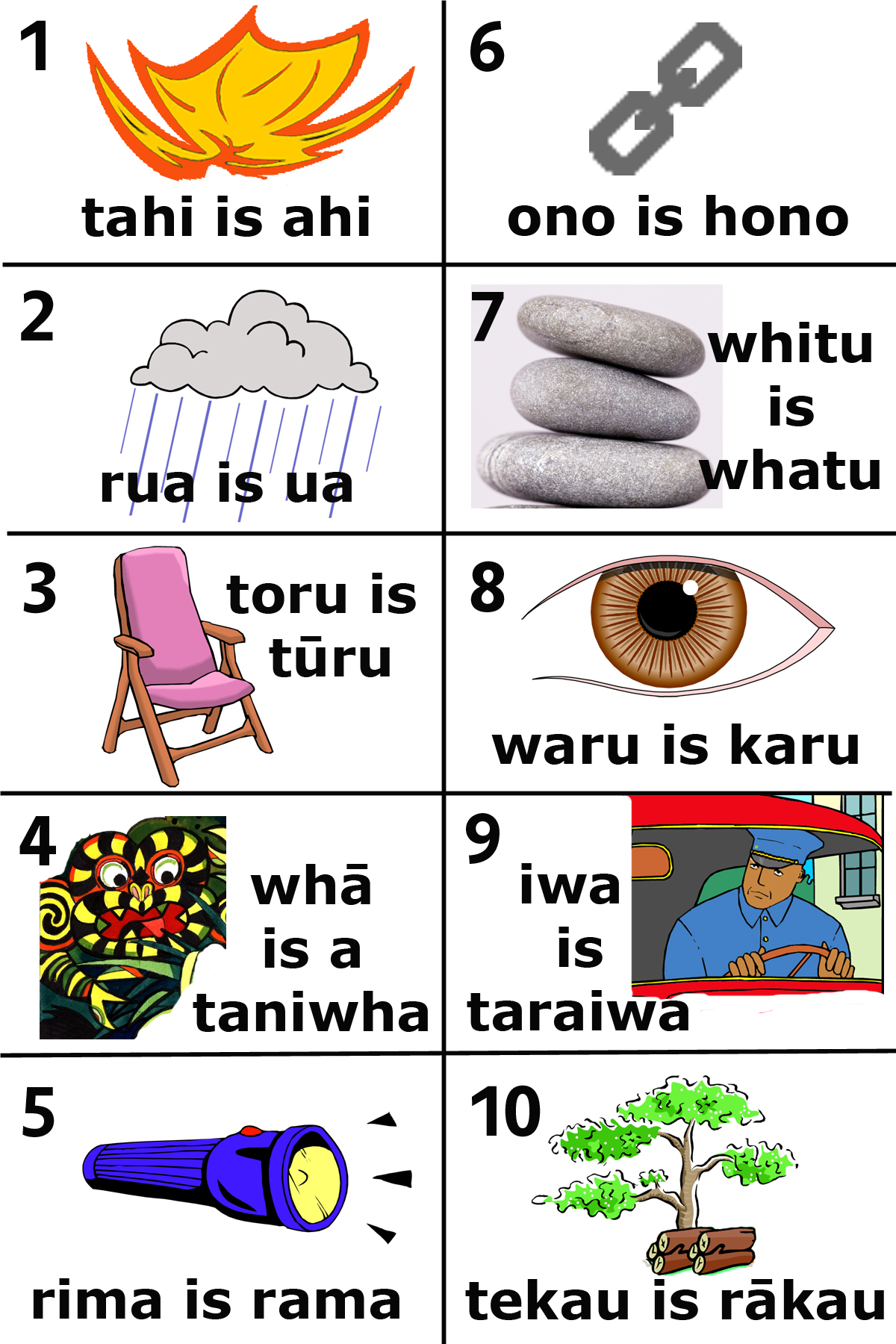In my article on using cognates to help you learn vocabulary in another language, I gave the example of trying to learn the German word for important, ‘wichtig’, and how there’s no hook there to help you remember it (which is why so many of us fall back on rote repetition to try to hammer vocabulary into our heads). However, I pointed out, if you knew that wichtig descends from a root that also produced weigh, weight, and weighty, you could reframe the translation as wichtig = weighty, important, and now you have your meaningful connection.
Such connections don’t do away entirely with the need to practice, but they do mean that much less practice is required. You just have to focus on that meaningful connection.
Let’s have a look at that in action.
A list of the 1,000 most commonly spoken Italian words, generated from subtitles of movies and television series, includes 475 nouns plus 17 numbers (cardinal and ordinal, so I’ve put them in a separate category).
I have classified all 475 nouns into groups based on the available meaningful connections for an English speaker learning Italian:
-
208 are very easy, meaning they’re very close to their English counterparts (Group 1)
-
54 are still fairly easy, being cognate with their English counterparts, and similar enough if you’re looking for it (Group 2)
-
101 are harder to see, but are still cognate (Group 3)
-
77 are still cognate, but more difficult (Group 4)
-
23 have cognates, but with obscure words or common French or Spanish words, or the similarity is much less evident (Group 5)
-
12, and only 12, are unrelated, and thus require a mnemonic connection (Group 6)
Of the 17 numbers, all are cognate, and most of them quite obviously so.
In other words, about 94% of this group have some meaningful connection with an English word. I will agree that the nouns and numbers are far more likely to be cognate than other parts of speech, but still, this is impressive.
I am working on a workbook that will expand on these, and contain all the top 1000 words. In the meantime, I hope the following lists of these nouns and numbers are useful.
Here are the numbers that appear in the list:
uno, one
due, two — think duo, dual
tre, three — also cognate with tri-, as in triangle, trio, tripod
quattro, four — think of quadruple, quadrilateral, quadruped, square
cinque, five — cognate with five, but this is not very obvious; also cognate with quinquennial and quinate, and of course French cinq
sei, six — cognate, but you do have to focus on the first part of ‘six’!
sette, seven — cognate but it may help to think of September (which used to the 7th month, before the Romans reformed the calendar by popping in what would become July and August), also septenarian and septuagenarian; also French sept
otto, eight — think octagon, octopus, octave
nove, nine — French neuf, English November (same reason: it started off as the 9th month), novena
dieci, ten — cognate with decimal, and French dix
venti, twenty — okay, there are words in English cognate with this, but they’re pretty rare; still, if you drop the initial t, the words become much more similar
cento, hundred — cognate with cent, century
migliaia, thousand — think of millimeter, millisecond, etc
milione, million
primo, first — think of primary
secondo, second
terzo, third
Ok, let’s look at the nouns. First, the ones that are very similar to their English counterparts:
Group 1
abilità, skill, ability
accordo, accord, agreement, chord (mus.)
animale, animal
appartamento, apartment, flat
area, area
arte, art
atomo, atom
atto, act
auto, car (automobile)
banca, bank
banda, band
bar, bar
base, base
bit, bit
blocco, block
bordo, edge, border
campo, field, camp
capitale, capital
capitano, captain
carattere, character
caso, case
causa, cause
cella, cell
cent, cent
centro, center
città, city, town
classe, class
colonia, colony
colonna, column
colore, color
commercio, trade, commerce
condizione, condition
consonante, consonant
continente, continent
controllo, control
copia, copy
corda, rope, cord
corrente, current
corso, course
costa, coast
costo, cost
cotone, cotton
cuoco, cook
cura, care, treatment, cure
danza, dance
decimale, decimal
deserto, desert
difficoltà, trouble, difficulty
discussioni, discussion, argument
divisione, division
dizionario, dictionary
dollaro, dollar
effetto, effect
elemento, element
energia, energy
esempio, example
esercizio, exercise
esperienza, experience
esperimento, experiment
est, east
evento, event
famiglia, family
fatto, fact
feltro, felt
fico, fig
fiera, fair, exhibition
figura, figure
finale, final
finitura, finish
foresta, forest
forma, form, shape
forza, force, strength
frase, sentence, phrase
frazione, fraction
frutta, fruit
gas, gas
gatto, cat
giardino, garden
gruppo, group
idea, idea
industria, industry
insetto, insect
interesse, interest
lettera, letter
liquido, liquid
linea, line
livello, level
log, log
lotto, lot
macchina, machine
magnete, magnet
mais, maize, corn
mappa, map
marchio, mark
massa, mass
materia, matter
materiale, material
melodia, melody
messaggio, message
modello, model, pattern
motivo, reason, motive
metallo, metal
metodo, method
minuto, minute
molecola, molecule
momento, moment
montagna, mountain
monte, mount, mountain
moto, motion
motore, engine, motor
musica, music
natura, nature
nazione, nation
nome, name
nord, north
nota, note
numerale, numeral
numero, number
oceano, ocean
offerta, offer
oggetto, object
olio, oil
ora, hour
ordine, order
organo, organ
pagina, page
palla, ball
papà, dad
paragrafo, paragraph
parte, part
partito, party
pausa, pause, break
periodo, period
persona, person
persone, people
pistola, gun
porto, port
posa, pose
posizione, position
possibilità, possibility, chance
pratica, practice
presente, present
problema, problem
processo, process
prodotto, product
proprietà, property
punto, point
quarto di gallone, quart
quota, share, portion, quota
quoziente, quotient
radio, radio
record, record
regione, region
resto, rest
risultato, result
rock, rock
rosa, rose
sale, salt
scala, scale
scienza, science
scuola, school
segmento, segment
segno, sign — also signal
senso, sense
sistema, system
sezione, section
sillaba, syllable
simbolo, symbol
soluzione, solution
sorpresa, surprise
sostanza, substance
spazio, space
stato, state
stazione, station
storia, story, history
strada, street, road
stringa, string
strumento, instrument, tool
studente, student
studio, study
successo, success
sud, south
suffisso, suffix
supporto, support
tavolo, table
team, team
temperatura, temperature
termine, term
test, test
tipo, type
tono, tone
totale, total
treno, train
triangolo, triangle
tubo, tube
turno, turn
ufficio, office
umano, human
unità, unit, unity
uso, use
valle, valley
valore, value
vapore, steam, vapor / vapour
velocità, speed, velocity
verbo, verb
vigore, force, vigor / vigour
villaggio, village
visita, visit
vittoria, win, victory
Group 2
the fairly easy nouns (but you may have to work a little to see the connection)
acqua, water — aqua, aquatic
amico, friend — amicable, Spanish amigo
angolo, corner — angle
anno, year — annual
amore, love — amorous, French amour
bambino, child, baby
barca, boat — barge, barque
bellezza, beauty — belle (the belle of the ball)
bevanda, drink — beverage
cane, dog — canine
carne, meat — carnivore
casa, home, house — well-known in English from the Spanish casa; also cognate with French chez (to, at), as in chez moi (at my house)
cavallo, horse — cavalry
cielo, sky — ceiling
collo, neck — collar
corpo, body — corpse
cravatta, tie — cravat
denti, teeth — dental, dentist
dimensione, size — dimension
discorso, speech, discourse
donna, woman — madonna, dame
erba, grass — herb
fine, end — final, also French fin
fratello, brother — fraternal, fraternity
libro, book — library
lingua, language — cognates, also linguistics, lingo
luna, moon — lunar
madre, mother — cognates, also maternal, maternity
mano, hand — manuscript (written by hand), also French main, Spanish mano
mare, sea — marine, maritime
mente, mind — cognates, also mental
meraviglia, wonder — marvel, marvellous
mercato, market — cognates, also merchant, mercantile
morte, death — mortal, mortality
naso, nose — cognates, also nasal
nave, ship — nautical, navy, navigate
pneumatico, tyre / tire — pneumatic tyre
poesia, poem — also poetry, poetic
posto, place, spot — post, position
potenza, power — potent
regola, rule — cognates, also regulate, regular
risposta, answer — response, riposte
salto, jump — saltatory, saltation, also French sauter
sangue, blood — sanguinary, sanguine, exsanguinate, also French sang, Spanish sangre
signora, lady — cognate with senior, sire
sole, sun — solar
stella, star — stellar
terra, land, earth, ground — terrestrial, also French terre
tratto, stretch (of road, river, land) — tract
uomo, man — human
vento, wind — cognates, also ventilate
vista, view, sight — vista
vita, life — vital
Group 3
Here are the words that are cognate, but less obviously so:
alimentazione, supply, feed, diet — alimentary (canal), alimentation
anello, ring — annulus, annular.
aria, air — aura, air, aerate, aerial
avviso, notice, advice, advertisement
calore, heat — calorie, calorific
campana, bell — is in fact the word for a church bell in English, but this is not a well-known word! also cognate with campanology, the study of bells
canzone, song — chant, French chanson
capelli, hair — capillary (because capillary veins are as fine as hair)
capo, chief — capo (come into English through the portrayals of the mafia), capital, per capita
cappello, hat — cap
coda, tail — coda, caudal, caudate.
copertura, cover — cover, covert
desiderio, wish — desire
dito, finger — digit
divertimento, fun — diversion
fattoria, farm — factor (meaning someone who acts as a business agent, especially a manager of a landed estate)
ferro, iron — ferric, meaning related to iron; also French fer
ferrovia, railway — ‘iron way’, A railway is an iron way, ferric via
fila, row — file (in the sense of people in a row, moving ‘in file’)
finestra, window — defenestrate, also French fenêtre, Spanish fenestra, German Fenster
fiore, flower — floral, flower; also Spanish flor, French fleur
flusso, flow — cognate with flux (when something’s in flux, it’s still in flow)
foglio, sheet, leaf — folio, foliate, exfoliate
fondo, bottom — fundamental, profound.
genitore, parent — progenitor, genitive
gioia, joy
giorno, day — journal, also French jour, journée
grado, degree, level, grade — grade, gradient
grafico, chart — graph, graphic
guerra, war — guerilla, also French guerre
immagine, picture — image, imagine
impianto, plant — implant, plant
isola, island — isle, isolated
lago, lake — lagoon
lato, side — lateral (relating to the side), quadrilateral (four-sided)
latte, milk — latte (milky coffee), lactose, lactating
lavaggio, wash — lave, lavatory, launder
lavoro, work, job — labour/labor
libbra, pound — this is why the abbreviation for pound is lb. (from Latin libra), also French livre, Spanish libra, and the zodiac sign Libra
luce, light — lux, lucent, translucent
lunghezza, length — from lungo, meaning long
maschi, men — macho, masculine
mattina, morning — matins (an early morning church service), also French matin
medico, doctor — medic, medical
mese, month — cognate with menses, trimester (3 months), semester (six months); also Spanish mes and French mois
mezzogiorno, noon — break it down into mezzo-giorno = mid-day
miglio, mile — cognates, and related to migliaia, thousand, from the Roman mile being 1000 paces
miniera, mine — cognates
modo, manner, way — mode
mondo, world — mundane (worldly, belonging to the world), also French monde, Spanish mundo
muro, wall — mural, immured
nascita, birth — nascent, renaissance
negozio, store, shop — negotiate
nemico, enemy — inimical, enemy
notte, night — nocturnal, and indeed night
nube, cloud — nebula, nebulous
onda, wave — undulate
oro, gold — auric, French or
orologio, watch, clock — horology
ossigeno, oxygen — cognates
osso, bone — ossify
ovest, west — cognates, also French ouest, Spanish oeste
padre, father — padre, pater, paternal, paternity
pane, bread — French pain, as in pain au chocolat; also Spanish pan
passo, step — pace
pensiero, thought — pensive, also French penser
pensione, board — pension
pesce, fish — Pisces, piscatory, also Spanish pez, and French poisson
pezzo, piece — cognates (also, you can think of a piece of pizza!)
pianeta, planet — cognates
piano, plane, plan, floor — cognates
piazza, square, plaza — plaza
piede, foot — pedal, pedestrian, also French pied, Spanish pie
piedi, feet — as before
pista, track — French piste, as in the English expression "off piste"
porta, door — portal, also French porte
primavera, spring — prima is cognate with primary (1st) and vera with vernal (relating to spring)
prossimo, neighbor — proximal, proximate
radice, root — radish
re, king — rex
riva, shore — river
rotolo, roll — rotate, roll
ruota, wheel — rotate, rota
sedia, chair — sedan chair, sedentary
sedile, seat — ditto
seme, seed — semen
soggetto, subject — cognates
soldato, soldier — cognates
soldi, money — solid, an old coin called the solidus, also French sol, sou
sorella, sister — sorority, also French sœur, Spanish sor
speranza, hope — esperance, desperate (out of hope), also Spanish esperanza, French espérer
spettacolo, show — spectacle
suolo, soil — cognate with French sol, Spanish suelo
suono, sound — cognates, also French son, Spanish son, sueno
superficie, surface — superficial
uovo, egg — ovary, also French œuf, Spanish huevo
viaggio, trip — voyage
vocale, vowel — vocal (because vowels are voiced by the vocal cords with little restriction on them, in an open way)
voce, voice — cognates
volontà, will — voluntary
zucchero, sugar — cognates
Group 4
harder cognates, where the links are more obscure:
acciaio, steel — the common root means sharp; cognate with acid, acerbic, acrimony
ala, wing — cognate with alar, agile, axle
albero, tree — cognate with arbor, arboreal, arboretum, also French arbre
azienda, company — cognate with hacienda
bastone, stick — cognate with bâton
caccia, hunt — cognate with catch
camera, room — used in the expression in camera, and cognate with bicameral, chamber, cabaret
camion, truck — comes from French camion, which has passed the word into many languages, including English; may derive from chemin, meaning way, path (see Spanish camino)
cappotto, coat — cognate with cape
carica, charge (as in attack), load — cognates, also car, chariot (think of a chariot charge and a car's load)
carta, paper — cognate with card, chart
cerchio, circle — cognates, also circus
chiamata, call — cognate with claim, declaim, proclaim
chiave, key — cognate with clavis, clavichord, clavicle, clef
collina, hill — cognates, also column, colliculus (anatomical term)
colpo, blow — cognate with the English/French word coup (coup de foudre, coup d'état, coup de grâce)
coppia, pair — cognate with couple; could also think of copied
cosa, thing — cognate with cause, also French chose
cuore, heart — cognate with core, accord, also French cœur
domanda, question, request, demand — cognate with demand
estate, summer — cognate with estivate/aestivate, estival/aestival, also French été
età, age — cognate with eternal, eon
figlio, son — cognate with filial, also French fils
filo, wire — cognate with filament, file
fiume, river — cognate with fluvial, flume, fluent, fluid
folla, crowd — cognate with full, folk, also French foule
fornitura, supply — cognate with furniture, furnish
foro, hole — cognate with door, forum, forensic
fretta, hurry — cognate with Fr frit, meaning fried (as in pommes frites), and indeed English fry, fried
fuoco, fire — cognate with focus (think of the hearth historically being the focus of the home or room)
gamba, leg — cognate with gambol, and French jambe
gamma, range — cognate with gamut, and of course the Greek letter gamma (but this doesn't point to the meaning in the same way)
ghiaccio, ice — cognate with glacier, and French glace (ice, ice cream)
gioco, game — cognate with joke, juggle, also French jeu, Spanish juego
giro, ride, tour, turn — cognate with gyrate
grido, cry — may be cognate with cry, also Spanish gritar
inverno, winter — cognate with hibernate, also French hiver
lattina, can, tin (diminutive of latta, meaning the same thing) — cognate with lath, lattice (all to do with being thin, narrow)
legge, law — cognate with legal
legno, wood — cognate with ligneous, lignite
letto, bed — cognate with litter (think of the litter used for carrying the sick or wounded, not trash), also French lit
lotta, fight, struggle — cognate with lock, locket, through a root meaning to bend, twist; also French lutte, Spanish lucha
mela, apple — cognate with melon
metà, half — cognate with median, mediate
moglie, wife — cognate with moll, mollify, Molly
neve, snow — cognate with Nevada, névé, nival, and indeed snow; also French neige, Spanish nieve
occhio, eye — cognate with ocular, oculist, monocle, and indeed eye; also Spanish ojo
orecchio, ear — cognate with aural, auricular, ear, also French oreille
paese, country — cognate with peace, also French pays, Spanish país
parola, word — cognate with palaver, parole, parlay, parable, also Spanish palabra
paura, fear — cognate with French peur (also quite similar to fear)
pece, pitch — cognates
pelle, skin — cognate with pelt, pellagra, film
pericolo, danger, peril
peso, weight — cognate with suspend, pound, expense, pensive
piega, crease, fold, pleat — cognate with pleat, replica, duplicate
pietra, stone — cognate with petrify (literally, turn to stone), also French pierre, Spanish piedra
pulcino, chick — cognate with pullet, also French poulet, poule
punteggio, score — may be cognate with point (as in score a point)
rabbia, anger, rabies — cognate with rabies, rage
raccolto, crop — cognate with recollect, collect
raggio, radius, spoke — cognate with radius
ramo, branch — cognate with root, ramus, ramification (branching)
ricerca, search, research — cognates, also French chercher (Cherchez la femme!)
richiesta, claim, request, demand — cognate with require, request
rumore, noise — cognate with rumour
schiavo, slave — cognates
secolo, century — secular (from the Latin saeculum meaning generation, century, and also worldly), also French siècle, Spanish siglo
sega, saw — cognate with saw, dissect, secant, segment (notice the cutting theme)
sonno, sleep — cognate with somnolent
sostantivo, noun — cognate with substantive, with core of word (stant) cognate with stand; think of a noun as a substantive thing that stands, that is, a concrete object
spalla, shoulder — cognate with spatula, spatulate (think of the broad, flat nature of the shoulder blade), epaulettes, also Spanish espalda
tempo, weather — cognate with tempo, tempest, also French temps, Spanish tiempo
vece, stead, place (as in, in my place, in my stead) — cognate with vice versa, vice (meaning in place of, subordinate to), also week, vicissitude, vicar
vela, sail — cognate with veil, velum (a thin membrane like a veil)
vestito, dress — cognate with vestiment, vest, divest
vetro, glass — cognate with vitreous, vitrify, also French verre, vitre, and Spanish vidrio
Group 5
Those with with the hardest connections:
anatra, duck — cognate with an obscure English word, anatine, also German Ente
bisogno, need — cognate with French besoin; a possible keyword for those unfamiliar with this word is bison
bocca, mouth — another obscure cognate: buccal (relating to the cheek), also French bouche (as in Fermez la bouche!)
braccio, arm, branch — cognate with brachial; not cognate with branch, but similarity useful
bugia, lie — cognate with boast
cambiamento, a change, shift, turn — cognate with change, although not very obvious; perhaps clearer if you know that cambiamento derives from cambiare, to change, and the English comes from French changier
guscio, shell — may be cognate with cyst
pioggia, rain — cognate with pluvial, flood, float, also French pluie
pipistrello, bat — used to be vipistrello, which makes the link to cognates vespers (evening prayers) and western (where the sun sets) more obvious
pollice, inch, thumb — cognate with obscure word pollical (of the thumb), also French pouce (thumb, inch)
ruscello, stream — cognate with rivulet, also French ruisseau (but may be easier to go with a keyword: the rushing stream)
sabbia, sand — cognates from a root meaning to pour, also French sable
salita, climb — cognate with saltatory, saltation, also French sauter
scarpa, shoe — cognate with sharp, derives from Gothic word meaning sharp object with pointed ends, because shoes had a pointed end?
sentiero, path — cognate with French sentier, Spanish sendero; apparently not cognate with send, sent, but PIE root word *sent- meant to go, to travel, so could be considered so
sera, evening — here's an obscure cognate that some might know: serotine (a bat); more familiarly probably: French soir (as in bonsoir), and Spanish sera
settimana, week — cognate with September, through the sept=7 connection; also French semaine, Spanish semana
slittamento, slip, sliding — not cognate, but similarity sufficient for imagining so
sorriso, smile — cognate with risible (laughable) and riant (laughing); sorriso derives from Latin sub-rideo (below a laugh, as it were); also cognate with French sourire, souriant
stagione, season — cognate with station, also Spanish estación
taglio, cut — cognate with tagliatelle, intaglio
testa, head — cognate with French tête, Spanish testa
uccello, bird — cognate with avian, aviary, also French oiseau
Group 6
Those with no connections. These are the ones for which a mnemonic link is recommended, and I’ve provided some suggestions:
cantiere, shipyard, building site — canter into the yard
cibo, food — chip (actually cognate with ciborium, a receptacle for communion wafers, if you happen to know it; also Spanish cebo)
elenco, list — elect to the list
gara, race — cheer the race
mucca, cow — moo cow
partita, (sports) match, game — participate in the game (actually cognate with a musical term in English, if you happen to know it)
ragazza, girl / ragazzo, boy — ragged urchin
scatola, box — casket
scheda, card — the schedule is written on the card
se stesso, self — stetson
tuta, suit (sweatsuit, tracksuit, overalls) — tutu
volto, face — think of the expression volte face
